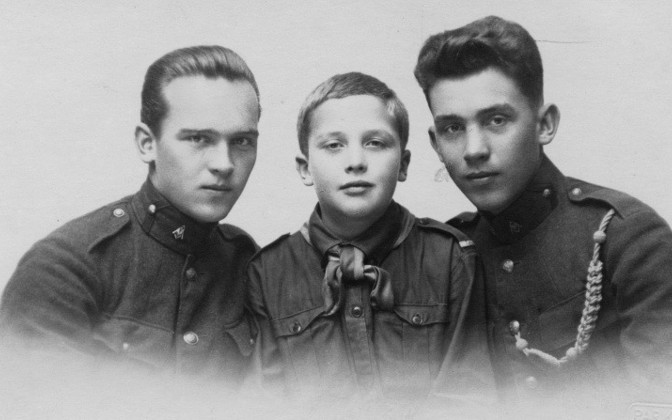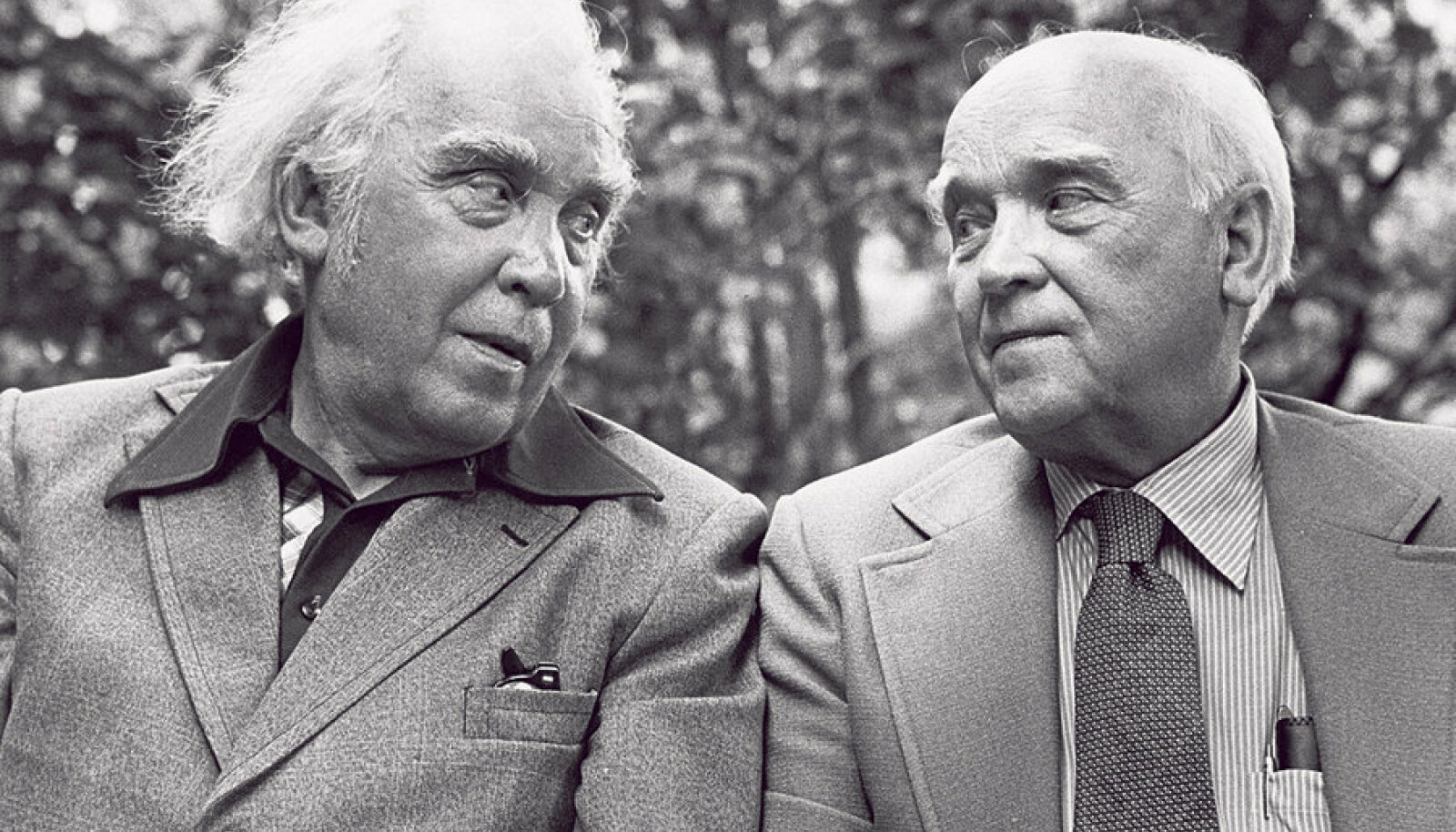On both sides of the front line: the tragic fate of the Ernesaks brothers in WWII
Three brothers. Two occupying armies. The Great War. An escape. Rekindling a brotherly bond despite the pain and the Iron Curtain. The Second World War caused a tremendous separation trauma for Estonia and other nations that were caught between Nazi Germany and the Soviet Union of which they are yet to recover.

In June 1940, the Soviet Union occupies Estonia and aggressive sovietisation begins. All citizens of the Republic of Estonia are expected to adopt the beliefs of a Soviet citizen overnight. A year later, a war breaks out between former allies: the communist and national socialist empires.
Gustav Ernesaks, who became a much-loved Estonian composer and conductor after the war, was mobilised to the Red Army in the summer of 1941 at the age of 32. He recalls how young men sang on a ship along with family members that had been left behind to the shore, while leaving the Port of Tallinn into the unknown: “This reciprocal singing... It’s the kind of opera one does not wish to hear again.”
His brother Osvald managed to avoid the mobilisation by hiding from the occupying forces in the forests like many other Estonian men. He did not wear a German uniform either – due to Osvald’s worsening health, the Germans were not able to mobilise him.
The younger brother Erik served in the Estonian army in 1940 when Estonia’s independence was destroyed. After the establishment of the German occupation, Erik Ernesaks was mobilised to the German army and was sent to Blue Hills (Sinimäed - a region in Estonia close to Russian border, where the most bloody battles in 1944 took place) after his training in 1944 to serve as an artilleryman. The family later learned that he had gone missing. The Soviet regime subsequently deported Erik’s wife Salme and daughter Kersti to Siberia. In the cold land, Salme lost her life.
In 1944, the Red Army began its attack on Estonia. Osvald, in fear of communist terror, decided to flee his homeland with his wife. Fate took them to the United States via Germany. The fear was justified because in free Estonia, Osvald had been politically active as well as a member of the student corporation Sakala. The Soviet regime considered such background a punishable “bourgeois-nationalist” activity and classified it under the paragraph 58 of the infamous Soviet criminal code, which stipulated severe penalties for all manner of "political crimes".
The family’s greatest ordeal was a feeling that the war will bring Erik and Gustav to fratricide.
In an interview, Osvald Ernesaks became teary when he said: “In 1944, when the fighting was going on, I had a feeling that Erik is here and Gustav is on the other side of River Narva and they’re shooting at each other.” Fortunately, Gustav was not in the battle field at the time, but in Leningrad (modern Saint Petersburg), where many Estonian artists were gathered. Gustav aptly said of the era full of death and sufferings: “The time was great and the human very small.”
The Second World War, initiated by a secret deal between power-hungry Soviet Union and Nazi Germany on 23 August 1939, separated the three brothers. It is highly likely that Erik departed his life at the front line. Gustav and Osvald were separated by a wall that divided the communist bloc from the democratic world.
The story of the Ernesaks brothers is an archetype of Estonia’s fate as well as the fate of many other Eastern European nations. A peaceful life was shaken up by the imposition of foreign ideas and uniforms. It was only after 50 years had passed that it became possible to talk honestly about everything. Stories that had been kept secret in families became a shared memory.
Gustav, who had grown into a so-called Father of Song in Estonia, and Osvald, who became engaged in banking in the United States, met for the first time after the war in 1966, in a Finnish town Turku, where Gustav was conducting a concert.
The conversation did not go well. Osvald recalled: “It was as if there was a wall between us.” The pain was too much to bear. The choir travelled onward to Helsinki by bus, and Osvald and his wife went along. The brothers ended up sitting together on a narrow bus bench. “There we stared to talk and eventually found each other,” said Osvald. The brothers later met again in Estonia during Song Festivals.
Looking at a photo of the two brothers, one is inclined to believe that the war yielded to brotherly love.

Love has an indescribable and an indestructible power.
Let us commemorate all victims of war and cherish our loved ones and our family story.
Gustav Ernesaks 1908-1993
Osvald Ernesaks 1911-1995
Erik Ernesaks 1918-1944
The story is based on the Finnish documentarian Jarmo Jääskeläinen’s documentary “The Ernesaks Brothers” that can be watched here (in Estonian): https://etv.err.ee/982085/vennad-ernesaksad